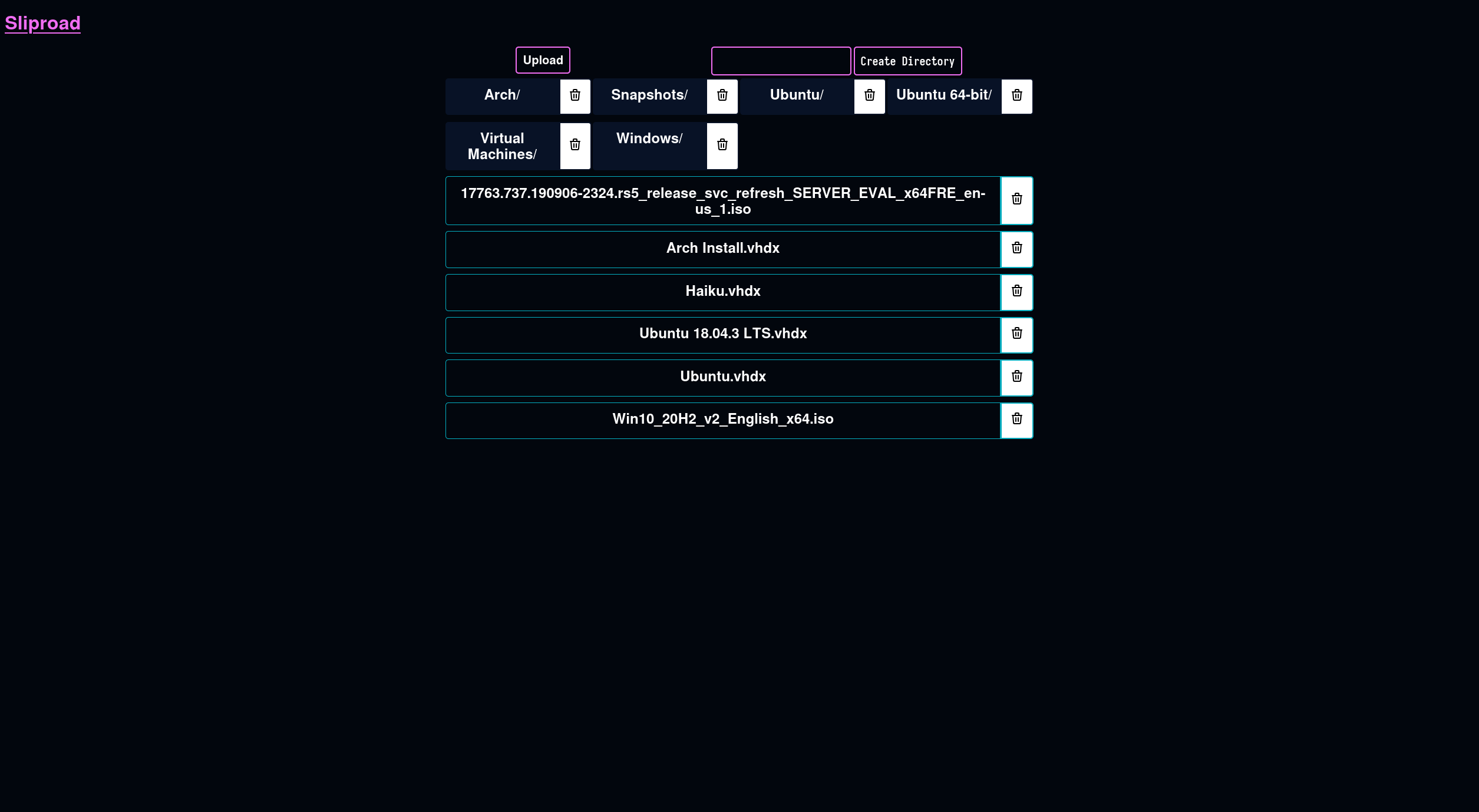Merging filesystems together
This project aims to be an easy-to-use web API and frontend that allows the management of cloud storage alongside local filesystems. While this is intended mostly for my own use, I am documenting it in a way that I hope allows others to use it!
Sliproad uses "Providers" to support various filesystems "types", whether it be
remote or local. Currently, three exist - disk for filesystems local to the
machine, backblaze to leverage Backblaze B2 file storage and s3 for AWS S3
(and other compatible providers).
An example of leveraging all three, in various forms, can be found below. As
more are added, this example will be updated, and more examples can be found in
the assets/config_examples directory.
disk:
provider: disk
path: /tmp/nas
backblaze:
provider: backblaze
config:
bucket: some-bucket
applicationKeyId: application-key-id
applicationKey: application-key
s3:
provider: s3
config:
region: eu-west-2
bucket: some-bucket
# An example of an S3 compatible API, doesn't have to be Backblaze.
backblazes3:
provider: s3
config:
bucket: some-bucket
region: us-west-000
endpoint: s3.us-west-000.backblazeb2.com
keyid: key-id
keysecret: key-secretAfter configuring the providers you would like to utilize, simply run
./sliproad. This will spin up the webserver at 127.0.0.1:3000, listening on
all addresses.
The frontend is a very lightweight JavaScript application and aims to be very functional, if a bit rough around the edges.
It should scale reasonably well for smaller devices. Because it's now bundled into the binary (as opposed to distributed alongside), it's no longer possible to swap it out for a custom frontend without serving the frontend seperately.
This project is largely API-first, and documentation can be found here:
https://github.com/gmemstr/sliproad/wiki/API
This project leverages a Makefile to macro common commands for running, testing and building this project.
makewill build the project for your system's architecture.make runwill run the project withgo runmake piwill build the project with theGOOS=linux GOARCH=arm GOARM=5 goflags set for Raspberry Pi.make distwill build and package the binaries for distribution.
New file providers can be implemented by building off the
FileProviderInterface struct, as the existing providers demonstrate. You can
then instruct the TranslateProvider() function
that it exists and how to configure it.
Authentication is a bit tricky and due to be reworked in the next iteration of
this project. Currently, support for Keycloak is
implemented, if a bit naively. You can turn this authentication requirement on
by adding auth.yml alongside your providers.yml file with the following:
provider_url: "https://url-of-keycloak"
realm: "keycloak-realm"
redirect_base_url: "https://location-of-sliproad"Keycloak support is not currently actively supported, and is due to be removed in the next major release of Sliproad. That said, if you encounter any major bugs utilizing it before this, please open an issue so I can dig in further.
SVG Icons provided by Paweł Kuna: https://github.com/tabler/tabler-icons (see assets/web/icons/README.md)
